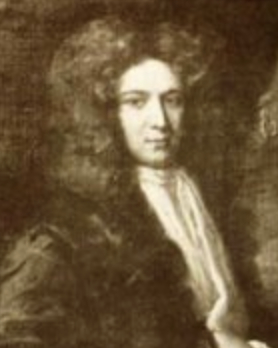On this date in 1676, Anthony Collins, called the “Goliath of freethinking” by Thomas Huxley, was born in Heston, England. Collins studied at Eton and King’s College, Cambridge, and was a close friend of John Locke. He moved in a circle of leading freethinkers, including John Toland and Matthew Tindal. “An Essay Concerning the Use of Reason” was published (anonymously) in 1707, along with a letter addressing immateriality and the soul. A debate in 1708 with Samuel Clarke resulted in the publication of four pamphlets by each participant.
In 1710 Collins wrote “Vindication of the Divine Attributes, in Some Remarks on Archbishop (King’s) Sermon.” The 1713 book, A Discourse of Freethinking, was his most influential work, helping to popularize the term “freethought.” Philosophical Inquiry Concerning Human Liberty, published in 1717, won the praise of Voltaire. The Grounds and Reasons of the Christian Religion (1724) rejected the claim that Jesus fulfilled Old Testament prophecies. Although Collins left England for a time when debate heated up after the publication of A Discourse of Freethinking, the courteous scholar was taken most seriously by leading religionists and Anglicans.
Grounds, with its serious arguments against prophecy and its advancement of the scientific principle, provoked more than 30 books and essays by religionists trying to counter it. Collins is best described as a deist and materialist who opposed “priestcraft,” although he did differentiate between good and bad priests. He willed his unpublished manuscripts to Pierre Desmaizeaux, who sold them after Collins’ death in 1729 to his widow. It appears that she then destroyed them. Desmaizeaux quickly regretted his decision but it was too late. (D. 1729)

